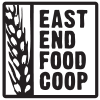The Board has tasked our Member-Owner Participation (MOP) Committee with researching the feasibility of re-instituting some form of a volunteer program here at EEFC. The following is the statement that the committee recently presented to the Board explaining the rationale for such a program. The Board anticipates a lengthy initial community discussion period before any concrete steps might be taken, should such reinstatement emerge as the choice of our membership. This kind of communal discussion did not occur in 2014, prior to the Board’s decision at that time to terminate the existing program, and a more robust, open process is anticipated. The Board urges member-owners to fully engage in this discussion. While the committee is still in its initial research phase, member-owners who would like to contribute their ideas are encouraged to do so at our monthly EEFC Board meetings, at the monthly MOP Committee meetings, or through the Board’s contact information available on the EEFC website.
Statement
Members of the MOP committee believe a revitalized volunteer program has the potential to strengthen our Co-op and our wider community. Offering volunteer opportunities encourages members to participate more fully, including voting in board elections, serving on committees, and participating in other governance-related activities, which has the potential to create a more robust member-owner democracy. Volunteer programs can generate a greater sense of community among members and staff. And members who volunteer are more likely to feel and behave like owners, who are committed to our Co-op’s health and survival.
We recognize specific benefits for offering a discount to volunteers. Especially during these times, many members and potential members need discounted prices to be able to afford healthy products. A volunteer discount can provide an incentive to get involved. By making shopping more affordable and participation in Co-op governance more attractive, we can draw from a more diverse group of member-owners—including some who might not tend toward involvement at a deeper level without the kinds of relationships that can develop through volunteer participation. And current and potential member-owners who wouldn’t personally volunteer will know they are part of an organization that actively supports the health and well-being of fellow members.
We also see potential financial benefits to the Co-op. Volunteers would assist the staff with their extra hands and expertise. And offering a volunteer program will attract new members. Because volunteering promotes greater involvement, we may attract new members who will become loyal, long-term shoppers.
Finally, we think a volunteer program can benefit the region’s food system. Depending on how the program is structured, members may have opportunities to support local farmers and other producers directly. Growing our membership by providing an attractive volunteer program will ultimately increase the region’s resilience by addressing food justice and sustainability.
We note that when we asked in the 2020 MOP-created survey if members wanted opportunities to volunteer, close to 200 responded affirmatively. We also note that volunteer programs have historically been part of the co-op model. We are currently researching other co-ops volunteer programs.
We recognize potential negative issues. A volunteer program poses an administrative burden. Volunteers may be less reliable than paid workers. For those reasons, the program could have a financial downside, over and above the cost of providing discounts. Some co-ops have ended their volunteer programs because of Department of Labor concerns. Our union might ask for constraints on the program.
However, with cooperation among all groups, we feel that all these issues could be resolved. We feel that the long-term benefits of increased member-owner engagement with one another, staff, and the broader Western PA food system will lead to a stronger sense of belonging and loyalty to the East End Food Co-op. We believe the financial costs of a program would be outweighed by the resulting benefits of building a more robust EEFC community.
Tom Pandaleon
Vice President, Board of Directors


Leave A Comment